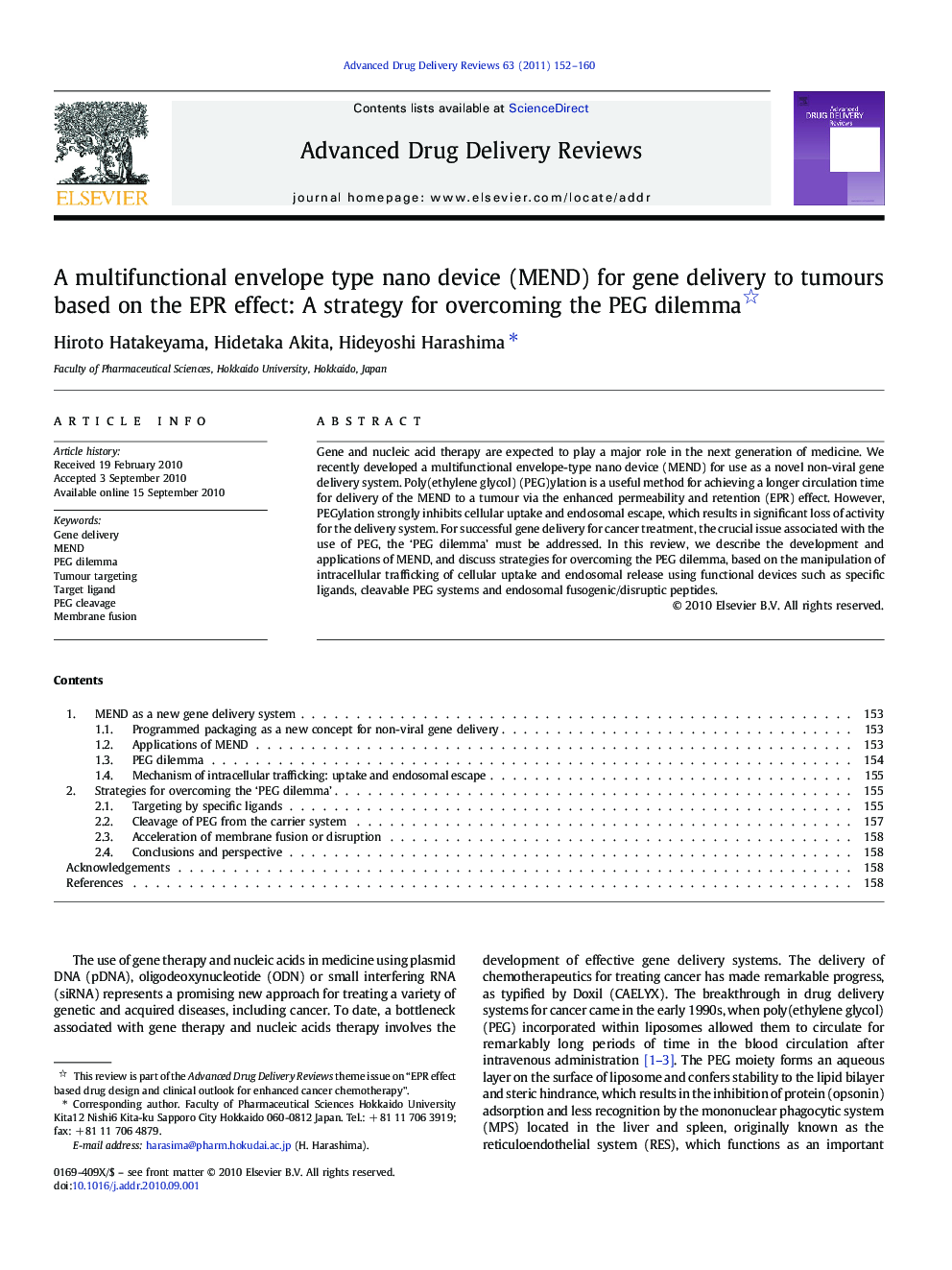| Article ID | Journal | Published Year | Pages | File Type |
|---|---|---|---|---|
| 2071291 | Advanced Drug Delivery Reviews | 2011 | 9 Pages |
Gene and nucleic acid therapy are expected to play a major role in the next generation of medicine. We recently developed a multifunctional envelope-type nano device (MEND) for use as a novel non-viral gene delivery system. Poly(ethylene glycol) (PEG)ylation is a useful method for achieving a longer circulation time for delivery of the MEND to a tumour via the enhanced permeability and retention (EPR) effect. However, PEGylation strongly inhibits cellular uptake and endosomal escape, which results in significant loss of activity for the delivery system. For successful gene delivery for cancer treatment, the crucial issue associated with the use of PEG, the ‘PEG dilemma’ must be addressed. In this review, we describe the development and applications of MEND, and discuss strategies for overcoming the PEG dilemma, based on the manipulation of intracellular trafficking of cellular uptake and endosomal release using functional devices such as specific ligands, cleavable PEG systems and endosomal fusogenic/disruptic peptides.
